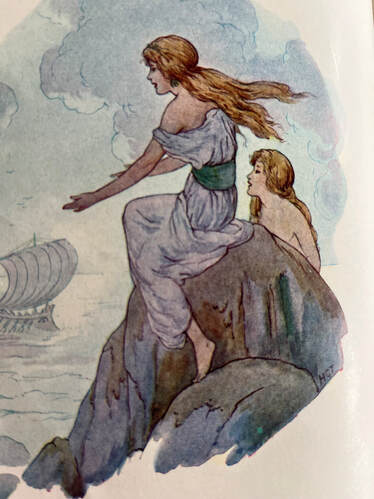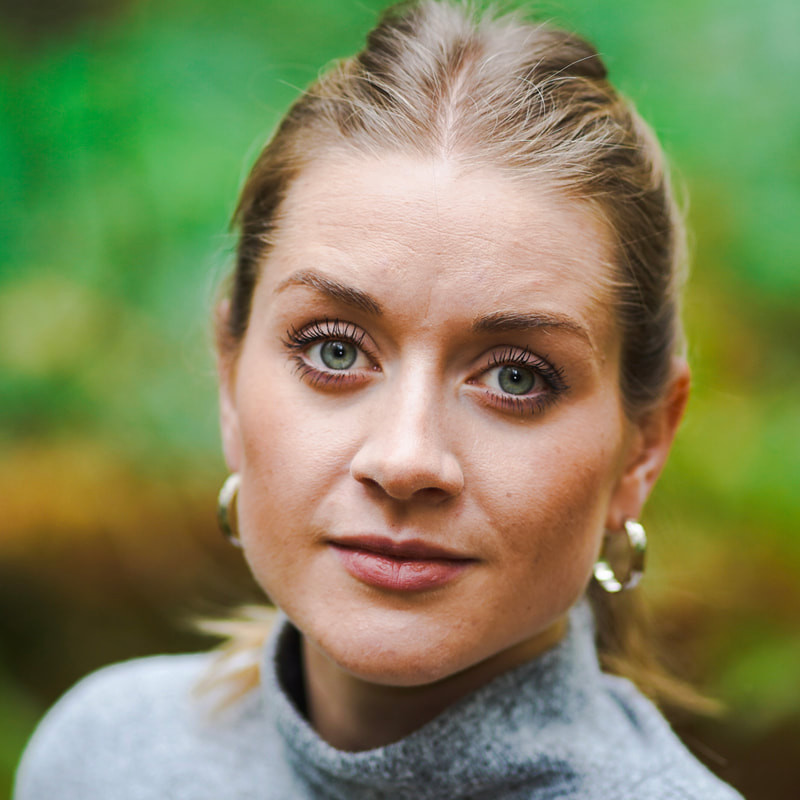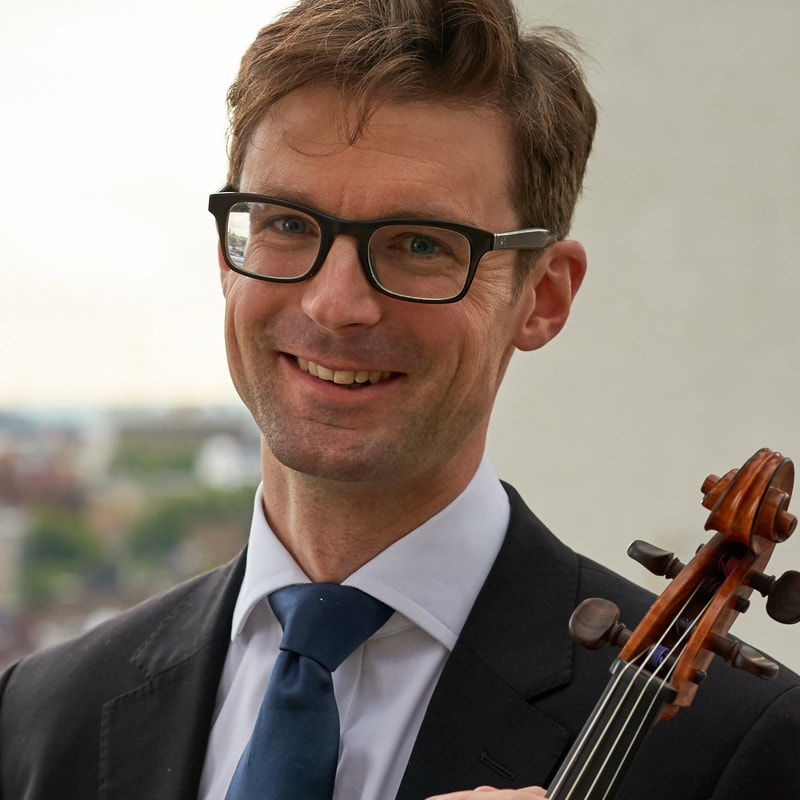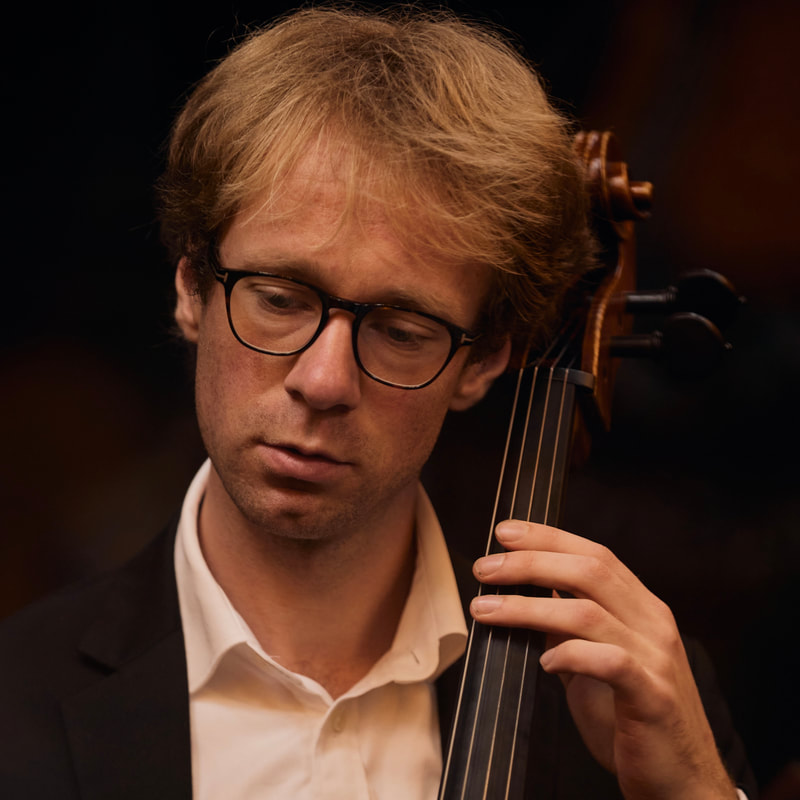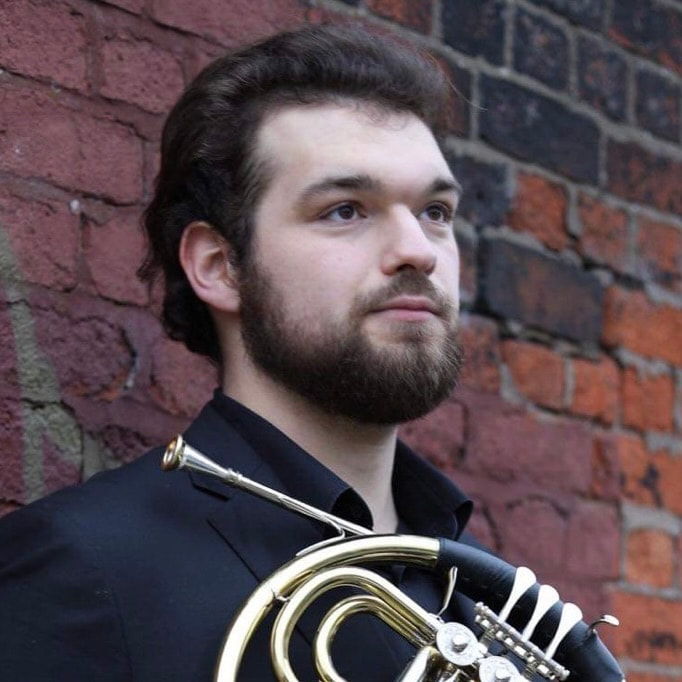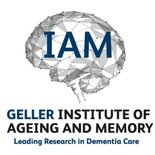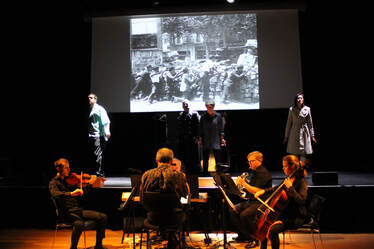|
Following last year’s comedy about a dead female pope, at the Tête-à-Tête Festival this year The Music Troupe presents an elegiac tragedy in a romantic style.
|
The Last Siren
...a Greek tragedy, a classical opera Thursday 31 August 2023 at 20:30 The Cockpit, London NW8 8EH as part of Tête-à-Tête: The Opera Festival “O traveller on the wine dark sea!” In Ancient Greece, two sirens with beautiful voices have the job of luring passing sailors to their doom. But when one of them finds love the singing contest gets serious. Two shipwrecks later, the tables are turned when Odysseus approaches…. Words: Norman Welch Music: Edward Lambert Director: Jenny Weston Dimitra, a siren: Arlene Belli, mezzo-soprano Belinda, a novice: Louise Fuller, soprano Viola: Dan Shilladay. Cello: Erlend Vestby Horns: Henry Wright, Lucas Boardman Dimitra is a siren-courtesan working from her territory on Sirens’ Rocks and is joined by a newcomer called Belinda, innocent and eager to succeed but at first unaware of her duties. She performs her sparkling audition piece, failing to impress Dimitra, who then demonstrates the art of seduction by singing voluptuously to a passing ship; we subsequently hear the crashing of a vessel hitting the rocks. Then, brandishing a knife, she goes off to seduce and dismember her victim and returns triumphant a few moments later. Belinda is aghast that the gods have tasked her to carry out such dreadful deeds. Prompted by her Echo, she is inspired to sing a different song as a veiled warning to the next ship that approaches. However, she has such a beautiful voice that her singing has the opposite effect to that intended. Again, the ship crashes, Belinda falls into the captain’s arms - and finds love. As Dimitra has already warned her, Fate now condemns her to a painful death: she is The Doomed Siren. But first, as Odysseus’ ship is sighted, both girls vie with each other, Dimitra to entice the hero onto the island, Belinda to ward him off. When the contest gets violent, Belinda seizes Dimitra’s knife and kills her. As Odysseus sails past, Belinda is left to perish alone. |
production images: Claire Shovelton
|
Arlene Belli (mezzo-soprano) is an alumna of the National Opera Studio in London and the Conservatorio Santa Cecilia in Rome. She is a recipient of the Sybil Tutton Opera Award and, after collaborating with WNO, ENO and Opera North, she has recently sung Polina in the 2023 Grange Festival’s production of The Queen of Spades. https://www.arlenebelli.com
|
Louise Fuller (soprano), graduate of TLCMD & RCM’s International Opera School, is a Samling Artist, an alumnus of the Training Programme in Banff, Canada, British Youth Opera, The London Song Festival & an Alvarez Young Artist for Garsington Opera 2018, 2019 and 2021. She recently made her debut at Wigmore Hall, London. https://www.louisefullersoprano.com
|
|
Dan Shilladay (viola) has worked with the Hanover Band (with whom he is co-principal viola) the Orchestra of the Age of Enlightenment, Britten Sinfonia and the City of Birmingham Symphony Orchestra. He is a founder member of the Berkeley Ensemble specialising in 20th and 21st century British music and is also in demand as a conductor and educator. https://danshilladay.co.uk
|
Erlend Vestby (cello) is a sought-after chamber musician having performed with ensembles such as Gabrieli, Brandenburg Sinfonia and Baroque Soloists, Opera Holland Park, Ensemble OrQuesta, Piccadilly Sinfonia, Florilegium, OAE Experience 2022, Southbank Sinfonia, and he looks forward to performing with Gothic Opera in October. www.erlendvestby.no
|
|
Henry Wright (horn) has performed with the Philharmonia Orchestra, English Symphony Orchestra, Birmingham Royal Ballet Sinfonia, London Chamber Orchestra, Irish Chamber Orchestra and the Hanover Band among others and is a founding member of the Zenith Brass Quintet.
|
Lucas Boardman (horn) completed his undergraduate studies in the summer of this year at the Royal College of Music and will continue at the same institution working towards a post graduate degree. Lucas has toured Europe as the Principal Horn of the LSSO and now works mostly in England as a freelance player.
|
|
Relaxed, dementia-friendly performance in collaboration with the Geller Institute
30 August 2023 at 2 for 2.30pm Lawrence Hall, St Mary’s Road Campus University of West London Ealing, London W5 5RF |
The Last Siren from Tête à Tête on Vimeo. |
Dementia Friendly Opera is a collaboration between the Geller Institute of Ageing and Memory (GIAM), the London College of Music (LCM) and The Music Troupe. From the performance we hope to develop and refine a toolkit for putting on Dementia Friendly Opera and Dementia Friendly Performance at venues across the country, particularly those underserved by the Arts and for whom attendance at such events would require arduous planning and travel, laying the foundations for work beyond the London College of Music and The Music Troupe, allowing any production to become accessible and dementia friendly.
The idea of the Dementia Friendly Opera came as a shared solution to separate problems being discussed between Edward Lambert of The Music Troupe and Andy Northcott of the Geller Institute of Ageing and Memory. The Music Troupe was established in 2014 as a means for Edward to return opera to its roots, moving away from the grand halls and lavish productions that it has become associated with and moving back to the story telling tradition, with contemporary chamber performances tailored to smaller, intimate spaces. The Music Troupe wished to expand outside of well-worn theatre venues to find new audiences for Opera outside of its established base.
At the same time Andy and his partners at GIAM, a research institute that focusses on improving the life of people living with dementia, were looking to address a pressing issue of their own. They had found that while there was a huge body of research showing the benefits of music as a therapeutic tool for people living with dementia, in practice the music chosen often made assumptions on the preferences on older people which could be wildly out of step with their individual taste. Too often musical choices in hospitals, care homes and community events were selected for their safeness, on an assumption of what would be acceptable or inoffensive to an audience, often based on a projection of older people years if not decades out of step with actual older people, while homogenising what will naturally be a range of idiosyncratic likes and dislikes.
There is a well established body of research and practice on the use music as a therapeutic tool for people living with dementia, with a body of evidence suggesting that engagement with music can minimise distress and agitation associated with dementia. (Vink et al 2003, Alfredo et al 2008, McDermott et al 2012, Wall and Duffy 2013), although there remains debate over how this is best delivered (Koger et al 1999). There is supported by a further significant body of research showing how music can be used to promote reminiscence, using music to strengthen memory, recall (Brotons et al 2000, Larkin 2006) and even recital (Baird and Sampson 2009). For those caring for somebody living with dementia seeing them remember old times can be hugely valuable, but, for those living with dementia, reminiscence is often test they are sabotaged to fail. Even when successful, this means spending your later years in a cycle of nostalgia, living in a past that for the person living with dementia is increasingly difficult to remember. Instead we wanted to create new memories for people living with dementia and loved ones, enabling them to keep living in the now, engaging and re-engaging with the arts they previously enjoyed or to experience them for the first time, and to create these memories in a genuine setting rather than in a watered-down version of the real thing.
Allowing older people to remain engaged with their communities, local events and the arts is important to what we do at GIAM. We are all living longer, with enhanced knowledge of well being and nutrition coupled with continuing leaps in medicine and surgery mean many of us will live well into our eighties and beyond, but society has not adjusted to support this. For too many people ageing means an end to social involvement, something hugely exacerbated when an individual or partner has dementia, even if they remain largely independent. Research (Rafnsson et al 2020) has shown that maintaining social connections and participation in activities are crucial to avoiding loneliness that can greatly exacerbate the impacts of both ageing and dementia. At GIAM we have been looking for ways to promote this, bringing diverse communities together to experience new performances, new mediums and new people as a means to promote not only living longer, but living fun and fulfilled lives.
Our solution is the Dementia Friendly Opera, starting with a performance of The Last Siren held at Lawrence Hall at The University of West London in Ealing. The Hall is located in one of the world’s great cities for the arts, but access to these world leading performances is perceived as impossible for many older people, which we hope this performance will address. The performance itself is an unabridged version of a brand-new opera, but the auditorium itself will be set up to be dementia friendly. This will not be the first time opera has been used in conjunction with improving the lives of people with dementia. Studies using Chinese Opera have shown its benefits as a therapy for people living with dementia (Chen et al 2020), but previous attempts at such engagement using western opera have made dementia and memory loss the topic of the performance (Fuller 2012, Wheeler 2023), rather than offering an escape from it.
Key to what we aim to achieve here is that this is a new experience, a new production shown in its original form, rather than repurposing familiar material in diluted formats. The production itself will be shown as it would to any audience, a chamber opera performed in its entirety by professional musicians and singers. Unique to this performance will be the safety of the venue, which will be staffed by trained dementia friends experienced in working with people living with dementia and their friends and families. The auditorium will be set out to minimise fall risks and the audience will be permitted to move around, speak and leave without admonishment. We will have quiet areas prepared for those who do not enjoy the performance, or cannot sit through the whole production, and provide light refreshments, and volunteers will be on hand to assist with guidance to toilets and other facilities as needed. At its core we are not providing a safe or neutered performance, but instead a safe place for people to experience the arts they previously enjoyed or are coming to afresh
The idea of the Dementia Friendly Opera came as a shared solution to separate problems being discussed between Edward Lambert of The Music Troupe and Andy Northcott of the Geller Institute of Ageing and Memory. The Music Troupe was established in 2014 as a means for Edward to return opera to its roots, moving away from the grand halls and lavish productions that it has become associated with and moving back to the story telling tradition, with contemporary chamber performances tailored to smaller, intimate spaces. The Music Troupe wished to expand outside of well-worn theatre venues to find new audiences for Opera outside of its established base.
At the same time Andy and his partners at GIAM, a research institute that focusses on improving the life of people living with dementia, were looking to address a pressing issue of their own. They had found that while there was a huge body of research showing the benefits of music as a therapeutic tool for people living with dementia, in practice the music chosen often made assumptions on the preferences on older people which could be wildly out of step with their individual taste. Too often musical choices in hospitals, care homes and community events were selected for their safeness, on an assumption of what would be acceptable or inoffensive to an audience, often based on a projection of older people years if not decades out of step with actual older people, while homogenising what will naturally be a range of idiosyncratic likes and dislikes.
There is a well established body of research and practice on the use music as a therapeutic tool for people living with dementia, with a body of evidence suggesting that engagement with music can minimise distress and agitation associated with dementia. (Vink et al 2003, Alfredo et al 2008, McDermott et al 2012, Wall and Duffy 2013), although there remains debate over how this is best delivered (Koger et al 1999). There is supported by a further significant body of research showing how music can be used to promote reminiscence, using music to strengthen memory, recall (Brotons et al 2000, Larkin 2006) and even recital (Baird and Sampson 2009). For those caring for somebody living with dementia seeing them remember old times can be hugely valuable, but, for those living with dementia, reminiscence is often test they are sabotaged to fail. Even when successful, this means spending your later years in a cycle of nostalgia, living in a past that for the person living with dementia is increasingly difficult to remember. Instead we wanted to create new memories for people living with dementia and loved ones, enabling them to keep living in the now, engaging and re-engaging with the arts they previously enjoyed or to experience them for the first time, and to create these memories in a genuine setting rather than in a watered-down version of the real thing.
Allowing older people to remain engaged with their communities, local events and the arts is important to what we do at GIAM. We are all living longer, with enhanced knowledge of well being and nutrition coupled with continuing leaps in medicine and surgery mean many of us will live well into our eighties and beyond, but society has not adjusted to support this. For too many people ageing means an end to social involvement, something hugely exacerbated when an individual or partner has dementia, even if they remain largely independent. Research (Rafnsson et al 2020) has shown that maintaining social connections and participation in activities are crucial to avoiding loneliness that can greatly exacerbate the impacts of both ageing and dementia. At GIAM we have been looking for ways to promote this, bringing diverse communities together to experience new performances, new mediums and new people as a means to promote not only living longer, but living fun and fulfilled lives.
Our solution is the Dementia Friendly Opera, starting with a performance of The Last Siren held at Lawrence Hall at The University of West London in Ealing. The Hall is located in one of the world’s great cities for the arts, but access to these world leading performances is perceived as impossible for many older people, which we hope this performance will address. The performance itself is an unabridged version of a brand-new opera, but the auditorium itself will be set up to be dementia friendly. This will not be the first time opera has been used in conjunction with improving the lives of people with dementia. Studies using Chinese Opera have shown its benefits as a therapy for people living with dementia (Chen et al 2020), but previous attempts at such engagement using western opera have made dementia and memory loss the topic of the performance (Fuller 2012, Wheeler 2023), rather than offering an escape from it.
Key to what we aim to achieve here is that this is a new experience, a new production shown in its original form, rather than repurposing familiar material in diluted formats. The production itself will be shown as it would to any audience, a chamber opera performed in its entirety by professional musicians and singers. Unique to this performance will be the safety of the venue, which will be staffed by trained dementia friends experienced in working with people living with dementia and their friends and families. The auditorium will be set out to minimise fall risks and the audience will be permitted to move around, speak and leave without admonishment. We will have quiet areas prepared for those who do not enjoy the performance, or cannot sit through the whole production, and provide light refreshments, and volunteers will be on hand to assist with guidance to toilets and other facilities as needed. At its core we are not providing a safe or neutered performance, but instead a safe place for people to experience the arts they previously enjoyed or are coming to afresh

